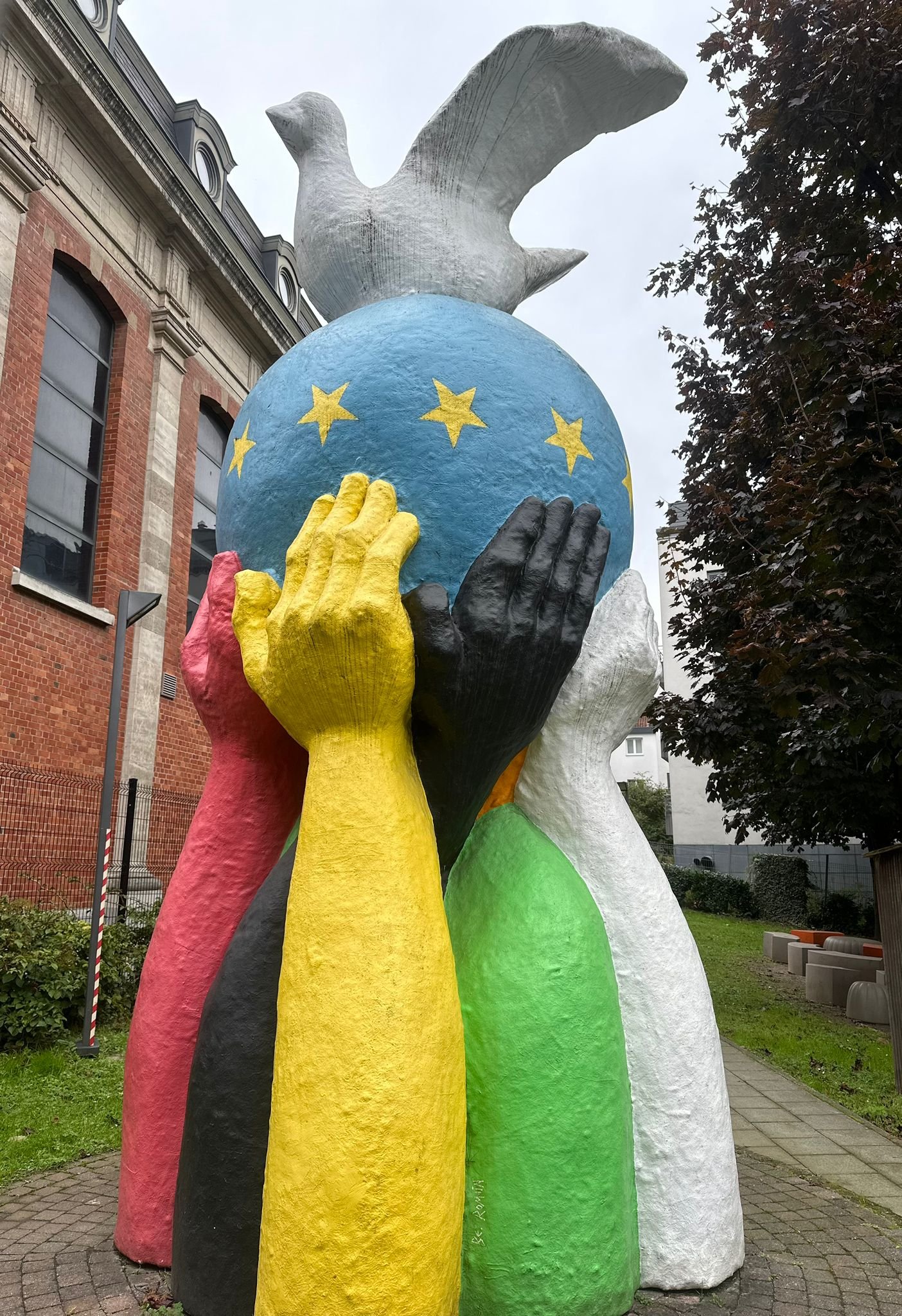Some say pictures speak louder than words, so we've decided to put that to the test, so everyone can see how we've sped up the process of empowering people made of potential out of homelessness via sustainable work and active citizenship for and with homeless people in our main programs once again in 2024 thanks to our growing international community.
January
The 1st edition of The Great Walk, which is an epic 150 km walk to give a voice and presence to the 150 million homeless individuals worldwide, was successfully created and completed. Every kilometer we walk represents 1 million people made of potential experiencing homelessness. We started in Zurich, Switzerland and finished in Davos to coincide with the World Economic Forum Annual Meeting. Homeless Entrepreneur celebrated our 6th annual WEF Sleepout in Davos in our effort to empower people made of potential out of homelessness thanks to public-private partnerships.
February
Homeless Entreprenuer’s commitment to empowering tourists with The Social Impact Room at Hostal Grau Eco Boutique strengthened as its guests starting choosing the initiative on their own instead of being selected.
Every Social Impact Room ends homelessness for 1 homeless person per year, gives a voice to 19 homeless individuals per year and connects 62 people experiencing homelessness with our Helpline annually. On top the direct impact we have on the local homeless community, we are building a stronger, more conscientious network of professional who travel the world and want to make the world a better place so ESGs (Environment/Social/Governance) become part of the DNA of global tourism.
March
As Homeless Entrepreneur expands throughout Europe, we educate future professionals in university about the obstacles and opportunities that the homeless community face.
Thanks to WorldStrides, our founder president, Andrew Funk, presented amazing strategy challenge for THE Great Walk to 230 students from the University of Utah, who even walked 345km as a group that day. They came up with new ideas to improve THE Great Walk, which helped us prepare for walk to Paris for the Summer Olympics Games.
April
Mentorship and strengthening our bonds with corporations not only provides direct support to our beneficiaries through our HELP program and main projects, it also bridges the gap between homelessness and the corporate world for Homeless Entrepreneurs.
For example, three Homeless Entrepreneurs were invited to present their HELP program and personal projects in front of the board of Novartis (Spain) as well as receive mentorship support throughout the year.
May
Travel plays a key role in improving Homeless Entrepreneur’s model of empowering people made of potential out odf homelessness. We learn more about how European cities are addressing it, while building the scope and strength of our support network.
We travelled to Belgium, Luxembourg and Belgium during May.
We are currently looking for our Mobility for Good Partner for 2025!
June
Nothing makes us happier than empowering people made of potential out of homelessness through our HELP Program except when we unite them with the sponsors who funding their program like Ismaila and Patrick.
The community of Europe’s #1 MasterMind by Patrick Wind successfully supported 2 Homeless Entrepreneurs in 2023-24 and committed to funding 4 more HELP programs in 2024-25!
July
Thanks to the support of Air Liquide and our network support, we successfully our second Great Walk, which started in Orleans, France and ended in Paris for the Summer Olympic Games, where we gave 150 million homeless people a voice and presence throughout the countryside and during the Olympics.
August
Homeless Entrepreneur partnered up with fritz-kola (our Helpline sponsor in 2024 who empower more than 200 homeless beneficiaries through our Helpline: +34 697 877 089) and Microsoft for our HEAT AID campaign for 3 main reasons:
1) No one should die in our streets due to the heat. Local government, corporations and everyday citizens have the chance to come together and ensure that individuals experiencing homelessness have the resources, tools and network to stay safe and healthy while providing opportunities to become active, working citizens again.
2) People experiencing homelessness are more exposed to heat related deaths. According to Climate Scientist David Hondula, “homeless people are about 200 times more likely to die from heat-associated causes than sheltered people.” (1)
3) Spain is one of the countries in Europe where the mortality rate of heat-related causes is the highest. Researchers found 61,672 people died of heat-related causes in Europe between 30 May and 4 September 2022. (2)
September
We finally completed our Twelve Cities project by Guillem S. Benet, a minimalist catalan pianist, which sonifies the obstacles and opportunities of homelessness and poverty in twelve European cities is almost finished.
Enjoy his piano piece called “Strasbourg,“ which was the last one he composed and officially published in November.
We are also proud to have inspired the city of Luxembourg with our project.
Tim de Buyser, 14 years old, is a student at the Conservatory and won first prize at the My Urban Piano Competition in 2023. In this video filmed in the Pfaffenthal elevator, he plays a piece composed by Guillem S. Benet, which is part of a cycle of songs representing different European countries.
October
Thanks to volunteers like Cristina Cabello, Global Procurement Technology at EY, Homeless Entrepreneur becoming part of the corporate DNA to create greater social impact.
We were selected as a potential recipient of Javier Pancorbo Awards’ XVII Edition at EY Spain in Madrid, Spain. Although we didn’t win the prize, we did win the hearts and minds of stakeholders at EY!
November
Our model to end homelessness caught the attention of Norway!
Our founder president, Andrew Funk, gave an interactive presentation called “Mastering the Art of Ending Homelessness“ at the Norwegian International Entrepreneurship Conference directed by Kristian Aartun.
December
After three long years of developing the concept, our “The UnforeSeen Variable“ sculpture created by international artist, Veronica de Nogales, in collaboration with Homeless Entrepreneur to raise awareness on global precarity and climate change to create positive social impact, it is finally going to be unveiled during the World Economic Forum at the Climate Hub Davos, which is organized by GreenUp.
Summary
Thanks to everyone who has been involved, we've provided support to +1,000 beneficiaries in our main programs in 2024 and hope to empower +3,000 people made of potential experiencing homelessness in our programs in 2025.
Special Thanks to our Collaborators, Partners & Support Network who EMPOWERED PEOPLE MADE OF POTENTIAL OUT OF HOMELESSNESS WITH US IN 2024!
We’d like to thank everyone who have placed their trust in Homeless Entrepreneur by interacting with us and supporting our work and most importantly our beneficiaries in 2024 because it wouldn’t be possible without them!
We need your support for 2025!
If you appreciate our work and would like to help support us, please do.
A donation that comes from your heart, which is coherent with your interest and possibilities is the difference between more or less homeless people made of potential becoming empowered out of poverty.
A huge hug,
Andrew Funk
Founder President of Homeless Entrepreneur







